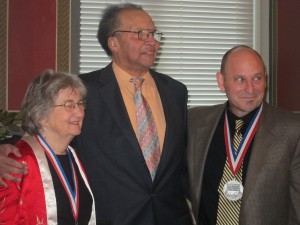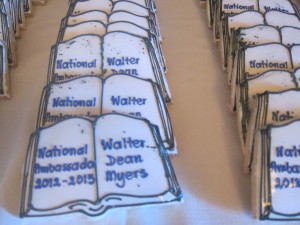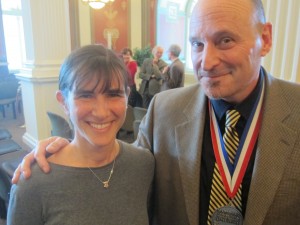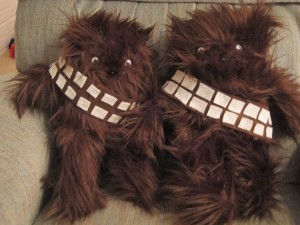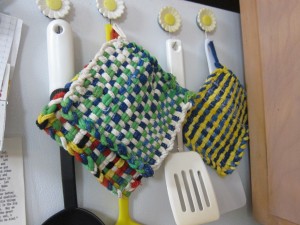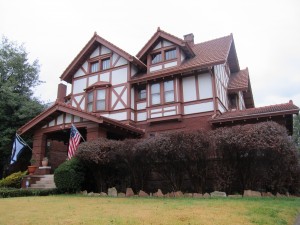 There are many different types of bravery, and one type is imbued in the pages of Laurel Snyder’s Bigger than a Breadbox, set to be released on Sept. 27th. It’s a story about magic, primarily, but interwoven in that magic is the event that causes the need for the magic in the first place: her parents’ divorce. I say HER parents, though of course the story isn’t about Laurel, it’s about Rebecca. Only the divorce part is based on Laurel’s childhood, which is where the bravery comes in. To write this story she had to relive those my-parents-are-splitting-up days – the days where you feel like you’re living in an after-school special. And to write the story knowing that her parents were going to read it – and read into it? That was brave, people. And perhaps, for Laurel, necessary.
There are many different types of bravery, and one type is imbued in the pages of Laurel Snyder’s Bigger than a Breadbox, set to be released on Sept. 27th. It’s a story about magic, primarily, but interwoven in that magic is the event that causes the need for the magic in the first place: her parents’ divorce. I say HER parents, though of course the story isn’t about Laurel, it’s about Rebecca. Only the divorce part is based on Laurel’s childhood, which is where the bravery comes in. To write this story she had to relive those my-parents-are-splitting-up days – the days where you feel like you’re living in an after-school special. And to write the story knowing that her parents were going to read it – and read into it? That was brave, people. And perhaps, for Laurel, necessary.
To help promote the book, Laurel asked for divorce stories from those of us whose parents divorced when we were at a vulnerable age, which is to say when we were anywhere between the ages of 1 and 70. I was in high school when my parents split up and I didn’t own a breadbox, magic or otherwise. I have stories, but I’m not brave enough to tell most of them, in part because I don’t want to go back there myself and in part because I don’t want my parents to have to go back there, either. So instead of opening the door, as Laurel did, I’m cracking a window.
Divorce has a color, in case you didn’t know that. For me that color was beige, the same color as my father’s new condo: the walls, the paintings, the chair, the couch, the linens. When my father remarried, he offered me his Divorce Furniture. It didn’t seem like the best omen, but I took it anyway. I covered the couch with the loudest slipcover I could find. I painted the dresser bright blue and added stars and moons, my own brand of exorcism.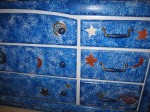
The taste of my parents’ divorce: That would have to be Chinese food that caught fire in the oven because my father didn’t know you couldn’t put cardboard containers in there when you turned it up to broil.
A casualty of my parents’ divorce: My grades. RIP trigonometry, which was during the period when my usually together mother locked her keys in the car and needed me to bring her mine. Obviously, this happened more than once.
A benefit of my parents’ divorce: My friends started hanging out at my house again.
The sound of my parents’ divorce: The Police’s Synchronicity album, which, thank G-d, I was able to separate from the rest of their catalog. It was in huge rotation in the early 1980s, on every rock station. Only my father never let my brother and I listen to rock stations when he was driving, preferring, instead, the generic classical of WPVR. But in those early weeks after he and my mom separated, he decided that being a cool parent meant buying us Billy Idol cassettes and letting us listen to Rock 105.
“There’s a little black spot on the sun today.”
Things were going fine until Sting sang that it was his destiny to be the king of pain.
“That’s me,” my father said. “King of pain.” He stared straight ahead and gripped the steering wheel. He wept. I haven’t been able to listen to that album since. Even when Sting had moved on from pain to sing about lemmings and breathing, I was done.
Another sound of my parents divorce: Cards. When my parents told us, my brother and I sat on the floor of his bedroom and began playing War, even though we knew hearts, spades, poker and three kinds of rummy. But we needed something mindless, something that could go on forever, so I remember the flicking sounds the cards made as we pulled them from the deck and placed them on top of each other. Flick. Flick. Flick. It seemed sort of appropriate, war, because wasn’t that what our parents were having? Except they weren’t. They were “growing apart.” That was their line. They stuck to it and I knew it was true, long before they even mentioned the word “divorce.”
That’s it for me. You can get plenty more from Laurel on her blog, in Breadbox, and here and now, as she stops by in her frantic week before publication to answer a few questions.
Me: You’ve talked a lot about wanting this book to be able to help kids grapple with their parents’ divorce. Which books helped you?
Laurel: I don’t remember a specific book that addressed divorce in a way I could believe. But the books that helped me most with that time were books about loner kids. Harriet the Spy and The Egypt Game, Wrinkle in Time and Dicey’s Song (which I seem to keep bringing up lately). Books that showed me I could be okay on my own made me feel like I could be okay with my family in a new formation.
Read on
